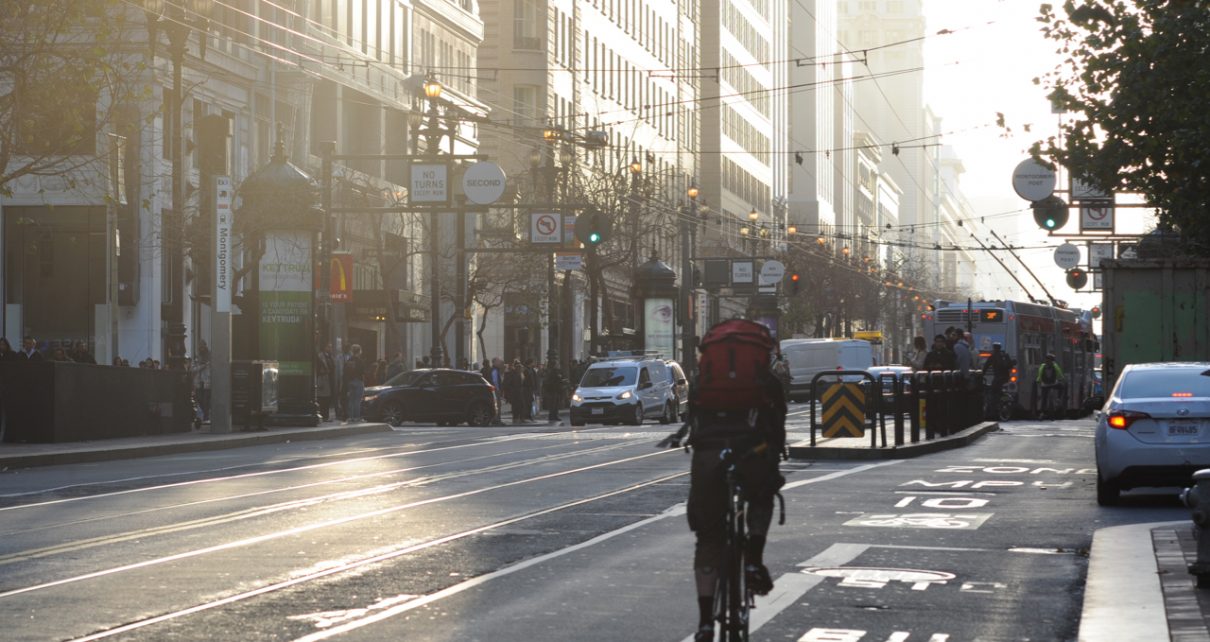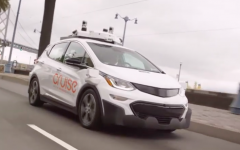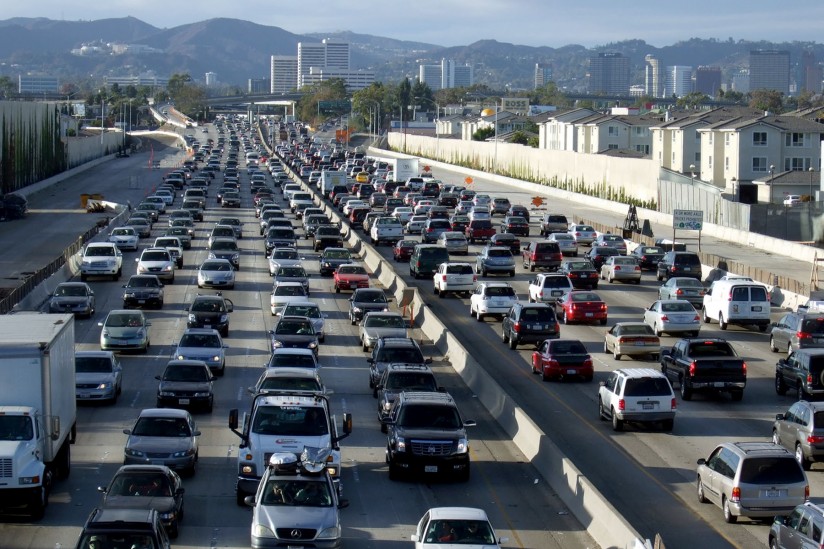
San Francisco, Market St. (Photo: Kevin Sanders for California Globe)
SF Transportation Agency Raises Several Challenges, Concerns Against Driverless Passenger Car Service
‘Remember that SFMTA is very much pro-public transportation, something that self-driving car companies are threatening’
By Evan Symon, December 2, 2021 3:57 pm
The San Francisco Municipal Transportation Agency (SFMTA) severely challenged driverless vehicle passenger ride services in a letter on Thursday, pointing out numerous flaws and issues with GM’s Cruise service.
Cruise, along with Alphabet’s Waymo and other services, are currently locked in a tight race to be approved to begin charging for rides in San Francisco and other places in California. In June, the California Public Utilities Commission (CPUC) approved Cruise to be operating in a pilot program setting, but with the strict caveat that the company could not charge for rides. By late September, Waymo was catching up to Cruise, with both companies receiving DMV approval to begin operating commercial services. Last month, Cruise tried to get ahead by applying for a permit with the state to begin charged fares.
However, this hit a snag on Thursday with SFMTA’s challenge. According to SFMTA, videos, including some from Cruise’s own promotional materials, show that Cruise vehicles have been picking up and dropping off passengers in the middle of the street. The action is illegal, as the law says the drop-off has to be made near the curb. The agency added that not only is the action unlawful, but that it endangers people and slows down traffic as a result, including buses.
Cruise may also face even further problems, as SFMTA went after their application and found that there was no service planned for low-income neighborhoods, minority neighborhoods, or riders in wheelchairs.
“Together, the Cruise Videos document 14 total stops for pick up or drop off of passengers; they provide evidence that not a single one of these stops complied with the requirements of the Vehicle Code and Transportation Code,” said SFMTA Director Jeff Tumlin in the letter.
While CPUC still has final say whether Cruise can charge for fares, the letter shows that approval is not a sure thing, and that the company may find issues operating in San Francisco if they don’t correct the issues pointed out by SFMTA. SFMTA wants CPUC to deny the permit unless Cruise can recognize and safely demonstrate lawful on-street parking, parallel parking, pulling into parking lots, and recognizing all other forms of transportation such as buses and trains.
Multiple issues raised against Cruise
Critics noted on Thursday that while SFMTA has some legitimate points, their intentions may not be fully altruistic.
“Driverless cars are still in their early days, and a lot of kinks are still being worked out,” Sebastian Jordan, a mass transit advisor who has worked with multiple agencies in California in the past, told the Globe on Thursday. “A big drawback, for example, has been the reluctance of people to accept these, as a lot of people prefer having people drive still. Even younger generations like Gen Z and the Millennials, who are more privy to technology, really prefer people behind the wheel. Two-thirds of the country wouldn’t even consider buying one, with over 70% being too afraid to ride in one.”
“But rideshare companies and other commercial entities want it, as it would eliminate having to pay for drivers, which is a huge savings.”
“Now, SFMTA does raise some good points, as I’m sure everyone could see what the issue of letting people out in the middle of the street is. And if they are purposely avoiding minority neighborhoods and some of the other things charged? That is a tough thing to answer. Individual taxi drivers and rideshare drivers have faced heat for decades for not accepting passengers based on the destination or who they are. Imagine a whole company.”
“But we also need to remember that SFMTA is very much pro-public transportation, something that self-driving car companies are threatening a bit. Agencies like them would rather have people take the BART or a bus or even the trolley in San Francisco. So while these are legitimate points, let’s not forget they’re trying to protect themselves a bit too. Driverless cars are still a huge issue and not perfected, so there is still lots of time before we start seeing them come on the road in large numbers.”
Cruise said on Thursday that it will respond to SFMTA’s letter on Monday.





2 thoughts on “SF Transportation Agency Raises Several Challenges, Concerns Against Driverless Passenger Car Service”